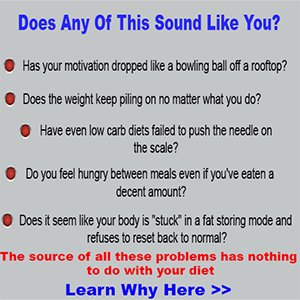Is Your Child Drinking These Type Of Drinks?
Speaking at the 2010 annual Nutrition conference, Rachel Johnson delivered some sobering news regarding Americans and added sugar.
Added sugar, simply put, is sugar that is added to a drink or food product in order to make it sweeter than normal.
This is not to be confused with naturally occurring sugar, which is sugar naturally occurring in a food (fruit) or beverage product (natural juice product).
She told the members in attendance that the average American consumed 475 extra calories per day from added sugars in food or beverages.
The recommendations for added sugar: women should consume up to 100 calories per day from added sugar (6 teaspoons) and men should consume up to 150 calories per day (9 teaspoons) of added sugar.
This brought into light artificial sweeteners, low-calorie sweeteners, and no-calorie sweeteners, which may be more for the health-conscious consumer.
Unfortunately, today there is more information on these artificial sweeteners and some of their effects on the body.
For example, it has been shown that artificial sweeteners, which are chemical derivatives of sugar, could elicit the same hormone response in the body as sugar does (raise in insulin, increased cravings for sugary foods, etc.)
Recently, research has suggested that the use of artificial sweeteners consumption is increasing among Americans.
According to a new study published in the American Journal of Clinical Nutrition, shows that the consumption of artificial sweetened beverages has increased over the last decade – especially in one specific age group.
Let me explain…
Artificial Sweeteners and Americans
Low calorie and no-calorie sweeteners have emerged in the marketplace as a way to curb added sugar intake.
As previously mentioned, however, the intake of artificial sweetened beverages has increased among Americans.
The authors of this study attempted to assess the national trends related to the intake of artificial sweetened beverages and foods products in children and other demographical subgroups including adults.
They used data collected from five, two year cycles of NHANES data collected from 1999-2000 and 2007 to 2008.
Food intake, particularly artificial sweetened food and beverages, were estimated using one 24-hour dietary recall information sheets.
The data showed that from 2007 to 2008, the percentage of children and adults consuming artificial sweetened beverages increased. In children, the numbers increased from 6.1% to 12.5% (which is double) and in adults the numbers went from 18.7% to 24.1%.
From the data that was presented, the researchers concluded that the consumption of artificial sweetened beverages doubled over the past decade, and further research is warranted to determine any health effects this may elicit.
Curbing the Obesity Trend
As previously mentioned, the use of artificial sweeteners could elicit the same response in your body as consuming extra sugar.
It has been shown that artificial sweeteners may increase insulin levels, increase cravings of sugar, and may even lead to some cancers.
This type of beverage has been produced, in part, to the rise of obesity and trying to curb the intake of added sugar.
However, as mentioned in this study, the consumption of these types of beverages has not only increased in adults, but has doubled in children as well.
Although more research is needed to determine the effects this may cause, it is important to understand how this may impact the health of future generations.
The ideal beverage to consume is water, however, green tea and green drinks (anti-oxidant rich drinks) have also emerged in the marketplace as nutrient-rich drinks designed to improve health and provide essential vitamins and minerals your body needs, while limiting the intake of added sugars, which may be more of a benefit to your overall health than artificially sweetened beverages.
NEXT: The Best Tasting Green Drink On The Market Today? >>
References:
Sylvetsky AC, Welsh JA, Brown RJ, Vos MB. Low-calorie sweetener consumption is increasing in the United States. Am J Clin Nutr. 2012 Sep;96(3):640-6. Epub 2012 Aug 1.
About Jayson Hunter & Jaylab Pro

Jaylab Pro was founded by Registered Dietitian Jayson Hunter. Jayson has been recognized as one of America's foremost weight loss experts by America's Premier Experts™. He has also been featured in USA Today for this accomplishment. Jayson is also a best-selling author having co-authored multiple books in health & fitness and business growth. Jayson and the Jaylab Pro team are proud to create content that helps improve the lives of millions of people around the world. We hope you enjoy it just as much as others have.
 If you order a JayLabPro SmartShip product or any Combo Package, we will automatically ship you a new supply of the product or products you have ordered every month, starting 30 days after your initial order is shipped, and continuing until you cancel. The credit card you are using today will be billed the lowest available price for those product or products when your order is shipped, but shipping will be FREE. You may log into your customer account or call our customer service department toll-free at 1-888-9GETPRO (1-888-943-8776) between the hours of 8am – 9pm EST Mon-Fri to cancel future shipments, customize the timing of your shipments, or change the credit card used for billing.
If you order a JayLabPro SmartShip product or any Combo Package, we will automatically ship you a new supply of the product or products you have ordered every month, starting 30 days after your initial order is shipped, and continuing until you cancel. The credit card you are using today will be billed the lowest available price for those product or products when your order is shipped, but shipping will be FREE. You may log into your customer account or call our customer service department toll-free at 1-888-9GETPRO (1-888-943-8776) between the hours of 8am – 9pm EST Mon-Fri to cancel future shipments, customize the timing of your shipments, or change the credit card used for billing.









